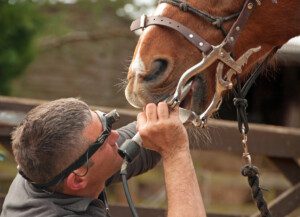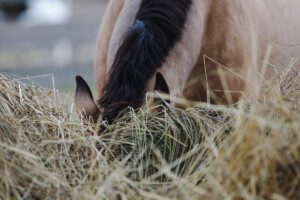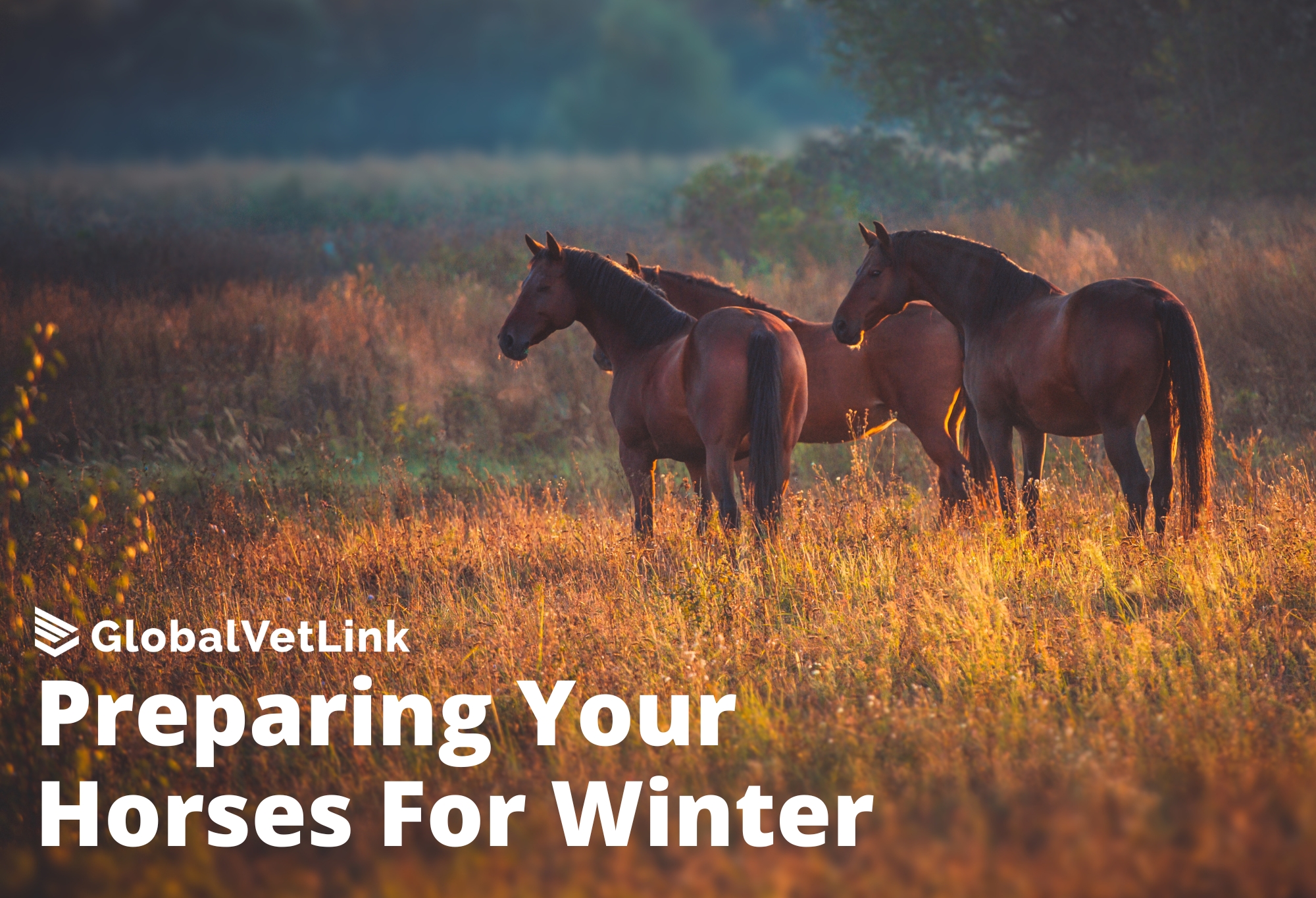With the arrival of fall, the air turns crisp, and the landscape transforms into a mesmerizing array of colors, creating the perfect backdrop for horseback rides. While we all enjoy the beautiful autumn weather, it's crucial to start preparing for the winter. Ensuring our horses are ready for the colder months is essential to make sure the season runs seamlessly without any issues. Check out these helpful tips you should consider while preparing your horses for the winter months!
Preparing Your Horses For Winter
Dental Examinations
- Ensuring your horse's teeth are examined annually, preferably before winter, is vital for a successful season. Maintaining good dental health allows your horse to chew and utilize the energy from grains and hay effectively, ensuring they stay warm and maintain a healthy weight. Remember to arrange an appointment with your veterinarian for a comprehensive dental checkup.
Fall Vaccinations

- If your horse is frequently on the move during the fall, whether for shows or trail rides, it's recommended to consult your veterinarian regarding fall vaccinations. Similarly, if your horse is housed in a boarding barn with high horse traffic or is immunocompromised, they qualify for fall vaccinations. Fall vaccines may include Eastern / Western / Venezuelan Equine Encephalomyelitis, Tetanus, West Nile Virus, Equine Herpesvirus (Rhinopneumonitis) / Influenza, and Potomac Horse Fever depending on your veterinarian’s recommendations.
Supplement Salt
- The essential mineral that horses require is salt, and it's crucial to provide it consistently throughout the year, especially during winter! Cold weather reduces horses' inclination to drink, putting them at risk of severe issues like impaction and colic. Additionally, while offering warmth, winter coats can make horses sweat more, even during moderate exercise.
Bulk Up On Forage
- As snow is about to blanket your pasture, securing sufficient supplemental forage to sustain your horses throughout the winter is crucial. Horses should consume 2% of their body weight in hay. For example, a mature 1,000-pound horse should consume 20 pounds of hay daily. Buying an additional 25% of hay is recommended to accommodate for potential wastage, higher feed needs, or a delayed spring.

Check Your Bucket Heaters
- Bucket and water trough heaters can be worn down with usage. Before winter, inspecting for damage, such as frayed cords and loose parts, is crucial. If any issues are detected, it's best to replace the product with a new one.
Inspect Your Blankets
- Regardless of the care taken while washing and storing your blankets last spring, conducting a pre-season inspection is essential. This ensures they are all in prime condition and that each horse requiring a blanket has a well-fitting one. Identifying issues like holes or insufficient waterproofing early provides ample time for necessary repairs or shopping for replacements before winter sets in.
As winter approaches, it's crucial to prioritize our horses' well-being. We can ensure their comfort and health by taking proactive steps in the fall, such as dental checkups, vaccinations, and inventory/equipment inspections. Most importantly, remember to enjoy the beauty that Autumn brings. We hope that it's more special with your equine companion alongside you.
Crowl, E. (2021, April 7). Calculating your horse’s Winter hay needs. Calculating Your Horse’s Winter Hay Needs | University of Maryland Extension. https://extension.umd.edu/resource/calculating-your-horses-winter-hay-needs#:~:text=Now%2C%20that%20you%20have%20taken,pounds%20of%20hay%20per%20day.
Fery, M. (2008, March). Tips for buying hay to last the winter. OSU Extension Service. https://extension.oregonstate.edu/crop-production/pastures-forages/tips-buying-hay-last-winter
The seasons change - so should your horse’s minerals! Redmond Equine Resource Articles. (2023, September 15). https://blog.redmondequine.com/the-seasons-change-so-should-your-horses-minerals
